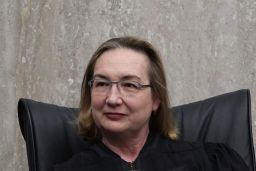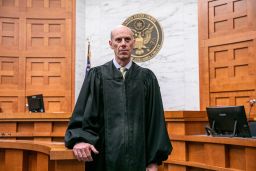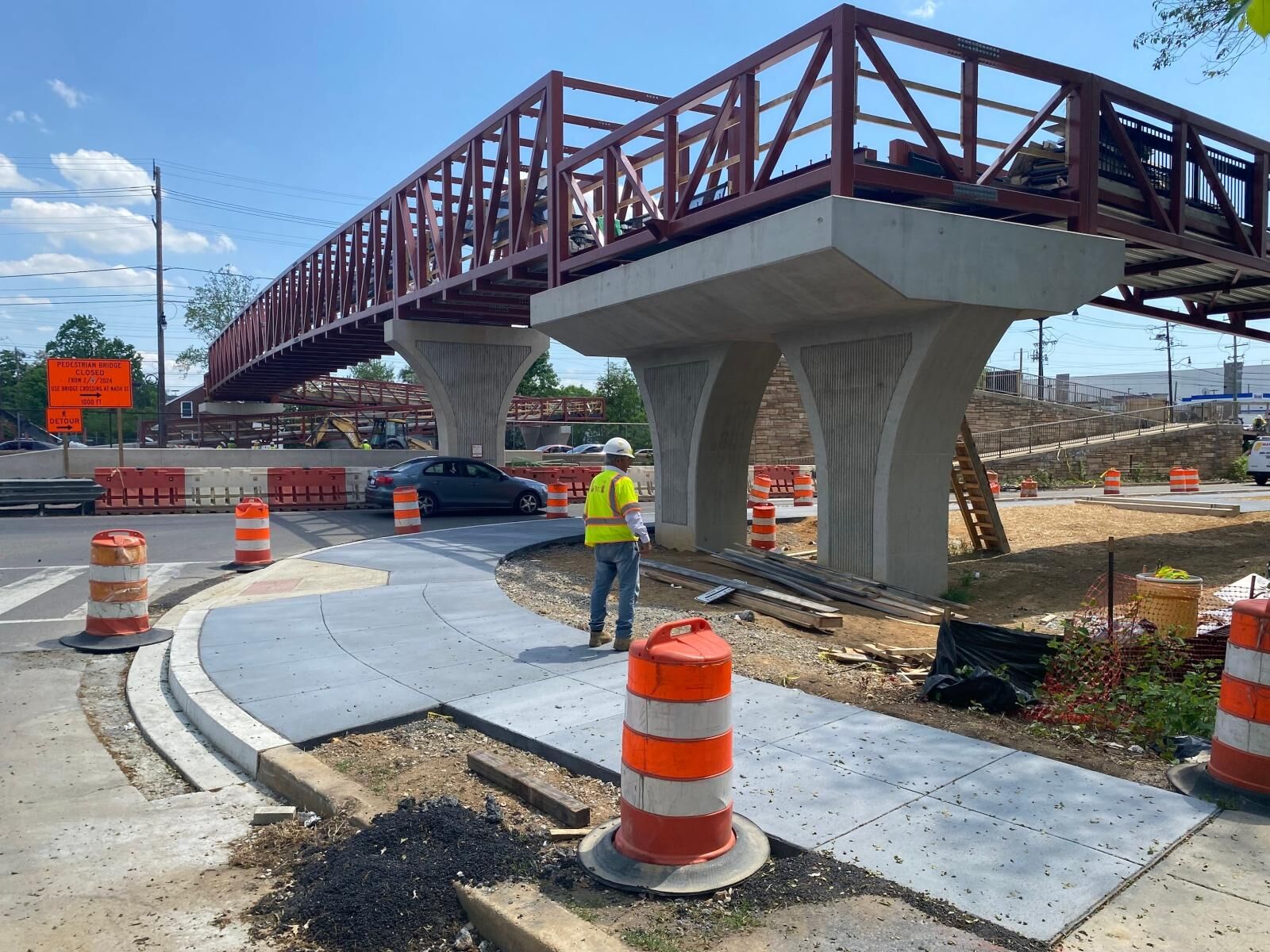CNN
—
Before indicting Donald Trump last year for allegedly mishandling classified documents, federal prosecutors had to decide where to bring the charges: Washington, DC, or Florida.
Ultimately, they charged the former president in Florida, a decision that has proven to be a fateful one — underscored by the vastly different approaches taken by DC judges as compared to the federal judge now presiding over the criminal case in Florida.
Those approaches became apparent in the past week as opinions were unsealed from two DC federal judges indicating how much more quickly and harshly for Trump the case might have played out had it remained in Washington.
And over the long weekend, the federal judge overseeing Trump’s case now in Florida has been thrust into a new debate about a gag order for the former president — an issue judges in DC already tackled.
In the recently unsealed opinions, DC District Court Chief Judge James “Jeb” Boasberg and his predecessor, Judge Beryl Howell, demonstrate a deep skepticism to arguments by Trump and his co-defendants on questions of attorney-client privilege and grand jury secrecy that Judge Aileen Cannon has spent months deliberating over in Florida.
Though it’s been nearly a year since special counsel Jack Smith indicted Trump for mishandling classified documents, the case remains stalled amid Cannon’s reluctance to rule on issues before her and appears unlikely to go to trial before the November election.
Cannon now is being asked to respond to a new request from prosecutors to curtail Trump’s ability to comment about law enforcement and witnesses involved in the documents case, because he keeps suggesting misleadingly the FBI was prepared to use deadly force against him during the search of Mar-a-Lago in 2022.
A federal judge in DC, Tanya Chutkan, who’s handling a separate criminal case against the former president related to the 2020 election, placed a gag order on Trump months ago preventing him from commenting about witnesses and others in that case in a way that could intimidate them or hurt the proceedings.
Cannon hasn’t yet responded to prosecutors imploring her to limit Trump’s speech in a filing Friday night.
The bulk of evidence against Trump in the documents case was taken in through a DC federal grand jury that continued to hear testimony months after the FBI seized hundreds of classified documents from Trump’s Mar-a-Lago residence in August 2022. But the Justice Department moved the investigation to a Miami grand jury in its final few weeks before charging Trump in South Florida’s federal court because much of Trump’s allegedly criminal actions took place at Mar-a-Lago, in Palm Beach, Florida.
Prosecutors have publicly disclosed little about the choice to move the case to Florida, though it has become a topic of discussion in the fights with the defense teams over secrecy, especially at a recent hearing before Cannon. “I can say that the investigation that was ongoing before the DC grand jury had – had adequate nexus to continue in Washington. I’m not prepared to comment on the date on which a decision to charge in Florida was made or what the internal deliberations were on that subject,” special counsel’s office prosecutor David Harbach told Cannon at a hearing last week.
Trump and his co-defendants’ attorneys have spent months trying to exploit that move, with the hopes that Cannon may think differently from Howell and Boasberg and want to scrutinize the prosecutors’ choices.
Cannon is now being asked to re-examine fundamental portions of the case that Howell and Boasberg had already ruled on, including prosecutors’ ability to secure testimony in the DC grand jury from Trump’s former attorney Evan Corcoran. Trump’s team is seeking to cut that testimony out of the prosecutors’ case entirely — an approach that might have been harder for the defense if the case had stayed in DC.
Last year, Howell ordered Corcoran to testify in front of the grand jury after finding that his conversations with Trump were not protected by attorney-client privilege because they were in furtherance of a crime. Corcoran’s testimony ended up informing key portions of the indictment against Trump and included detailed accounts of Trump’s alleged efforts to keep the classified materials hidden from federal authorities.
Bradley Moss, a DC-based lawyer with extensive national security experience, said that the ruling from Howell provided Cannon a “clear road map” to consider the attorney-client privilege issues.
But Cannon hasn’t even scheduled a hearing on the topic, which the parties began arguing over in court papers in February.
“That she continues to sit on the matter is inexcusable,” Moss said.
Compared to the DC judges, Cannon has been more reluctant to rule on issues before her, often giving wide latitude for defendants’ claims to be argued over several rounds in court and has entertained attempts to pull the case away from its central issues and into arguments viewed as fringe by a broad spectrum of legal scholars.
Howell, in a pre-indictment ruling that let investigators obtain details of conversations Trump had with his attorney that otherwise would have been protected by privilege, said that there was “strong evidence” that Trump “intended” to hide the classified documents. Howell’s 84-page opinion last March agreed with prosecutors’ arguments of potentially criminal obstructive behavior by Trump that is now central to the criminal case.
Howell analyzed much of the same Trump conduct that girded charges that were filed roughly three months later, and the judge found that prosecutors had put forward “sufficient” evidence of a crime to allow for the privilege to be breached. That is a lower bar than what an eventual jury will have to grapple with in the case.

But the exercise required Howell to confront some of the very same Trump defenses that his lawyers are now putting before Cannon.
For instance, Howell made the point that even if Trump, as a former president, had the authority to keep the classified materials, he was required by a relevant law to “safeguard” the information, and in this case the “classified documents were stored in unauthorized and unsecured locations,” she said.
A similar argument Trump made in his trial court has tied Cannon up in knots. While she ultimately rejected a Trump bid to dismiss the case on the grounds he could have kept them post-presidency, she did so after hours of oral arguments, an additional round of written arguments and with a ruling that sidestepped the legal merits of the argument.
The newly unsealed ruling from Boasberg, meanwhile, rejected a request this month from Trump and his co-defendants that the DC-based judge hand over to Cannon several records of confidential grand jury proceedings.
The effort to transfer the records is being spearheaded by Trump’s valet and co-defendant Walt Nauta, who is seeking to bring scrutiny to a 2022 interaction his attorney had with prosecutors after Nauta stopped cooperating against Trump.
Boasberg’s ruling included a word of caution — perhaps an implicit jab at Cannon — about the possibility that the confidentiality of the grand jury would be hurt if its records were handed over to another court that is not fully steeped in that grand jury’s history.
It was an apparent dead end with the DC-based judge.
“Such a court, venturing beyond its expertise, may disclose more material than warranted,” Boasberg wrote.
Boasberg, an Obama appointee, cited extensive case law and even prior decisions in DC. He has also sent a “recommendation” to Cannon on how to handle secrecy of other grand jury records more relevant to the case, which Boasberg’s court has provided to the Florida court.

Boasberg’s ruling called out Nauta’s lawyers for trying to game the system with Cannon in Florida in a search for past secret courts records that they think could help him.
Boasberg deemed it, bitingly, a “fishing expedition.”
“His request extends to matters he knows nothing about,” Boasberg wrote. “He imagines that upon transfer to Florida, the court presiding over his criminal case would sift through the records docket by docket and entry by entry, plucking out whatever material it deems relevant to his defense.”
Still, Nauta’s attorney continued to argue to Cannon last week that even without the older records from DC, she could reopen the dispute Boasberg previously handled in her court.
Cannon, a Trump appointee confirmed to the bench in late 2020, has far less experience than the DC court handling cases where high-stakes political implications intersect with national security interests.
For instance, Boasberg previously served as the chief judge on another powerful judicial bench that works almost solely in the national security space, the Foreign Intelligence Surveillance Court. The court looks at surveillance warrants related to national security intelligence matters, and it handles extensive classified issues from its base out of Washington.
And Howell, also an Obama appointee, is one of the most seasoned judges in the country on the sort of attorney-client privilege disputes that occurred during the Trump grand jury investigations, with more public opinions on the topic in politically charged investigations than perhaps any other judge in the country.
Cannon, conversely, has presided over only four criminal trials since Trump appointed her to the bench in 2020, in a courthouse so sleepy it didn’t have a secured facility to look at classified records until months after Trump’s case landed on her docket last June. She is taking months to work through classified records issues in the case, and hasn’t even scheduled hearings on a major set of disputes to come over the national security records the defense lawyers may want to use at trial.
“Simply greater exposure to this litigation process alone speaks to the speed and detail with which these two DC judges handled these matters in comparison to Judge Cannon,” Moss said.
CNN’s Hannah Rabinowitz contributed to this report.






























